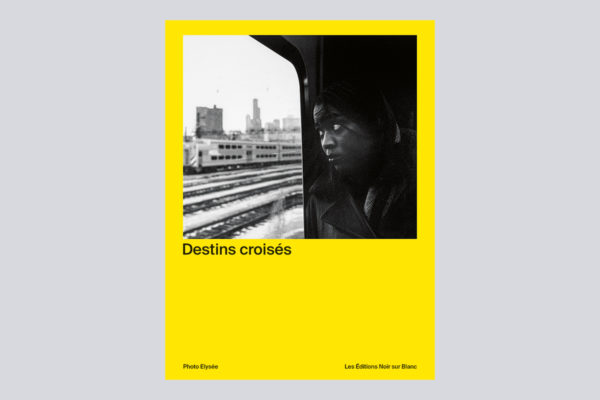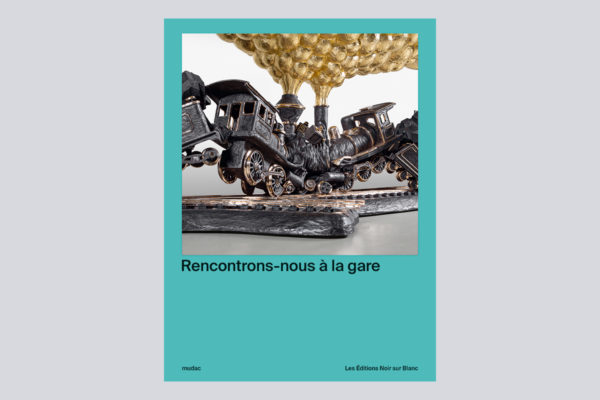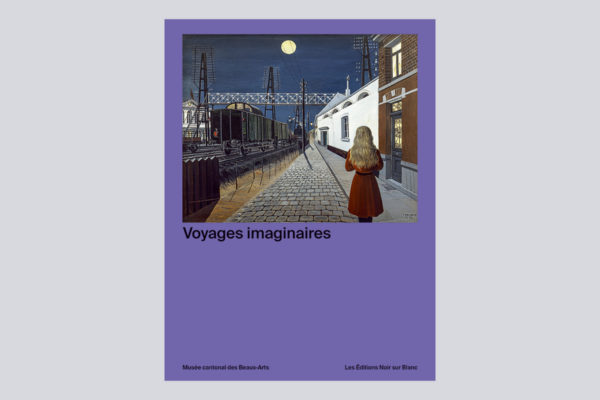Train Zug Treno Tren
Boxed set of three books
| Editor | Les éditions Noir sur Blanc and Scheidegger & Spiess (German versions) |
| Publication date | 2022 |
| Dimensions | 18 x 24 cm |
| Number of pages | 3 x 176 pages |
| ISBN | ISBN 9782882507471 |
| Price | 95 CHF |
Train Zug Treno Tren. At the crossroads of painting, photography and design. Three books, three museums, three exhibitions on a common theme: the train! The train that connects cities and countries, that allows encounters, that opens the door to dreams; the train that frightens, that separates, that carries away; the train that amazes... Through more than 200 photographs, 100 paintings, 100 design objects, videos and installations, discover how the train feeds the imagination of artists - and our own...
Photo Elysée
Between fascination, inspiration and interrogation, Crossing Lines explores the connections between the expansion of the railroad, the rise of cinema and the experiments of the artistic avant-garde through an exceptional collection of photographs (Adolphe Braun, Alfred Stieglitz, Roger Parry, O. Winston Link, Ella Maillart, Sabine Weiss, René Burri, Henri Cartier-Bresson, Martine Franck, Jean Mohr, Bernard Plossu), films (the Lumière brothers, Georges Méliès, Abel Gance, Charlie Chaplin), and paintings or drawings (Gustave Caillebotte, Paul Klee, Aloïse Corbaz, Pablo Picasso, Andy Warhol, Ceija Stojka). Over the course of fifteen chapters, the book travels through the landscape of tracks, tunnels and bridges in Europe and elsewhere; discovers emblematic places such as Saint-Lazare and the Pont de l’Europe in Paris or the lines of the EL in New York; analyzes the complexity of the social relationships specific to stations and rail cars; retraces the struggles and fights of those who work for the railways; and reveals new points of view from other forms of travel.
MCBA
The railroad, inseparable from the ideology of progress in the industrial age, generates incongruous effects in the artistic imagination. With its Voyages imaginaires, the Musée cantonal des Beaux-Arts offers a journey through futurism and metaphysical painting (Gino Severini), surrealism (René Magritte, Max Ernst) and contemporary art (Chris Burden, Fiona Tan), via Edward Hopper and Paul Delvaux. In their works, railway stations, symbols of modernity, are emptied of their railway workers and travelers; they become places of expression of dreams and illusion. The stories of travel and the enclosed space of the compartment nourish dark fantasies just as much as the locomotive and its cars reveal an erotic and poetic potential.
mudac
Symbols of industrial development and urbanism in the 19th century, train stations and trains have gradually become the places where people meet, leave and have chance encounters. For this reason, mudac has chosen to place the individual at the heart of its exhibition. The latter invites each visitor to become, for the time of the visit, the character of the novel to which they would like to belong. Through its settings and installations, the exhibition Let's meet at the station allows visitors to immerse themselves in a sort of daydream, where the free course of the visit is to be considered as so many possible journeys. This union between reality and fiction is at the heart of the story told by the mudac, punctuated by objects from the fields of design and contemporary art, and extended by the moving images of the advert and music videos. SBB archive documents are displayed alongside works by Christian Boltanski, Salvador Dalí, Sophie Calle and Studio Job.






